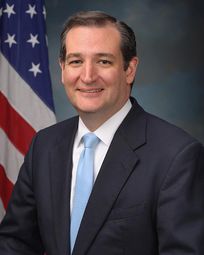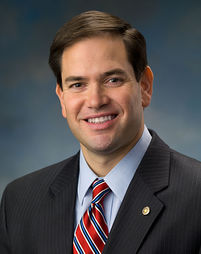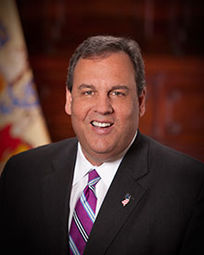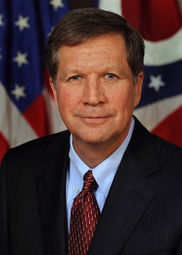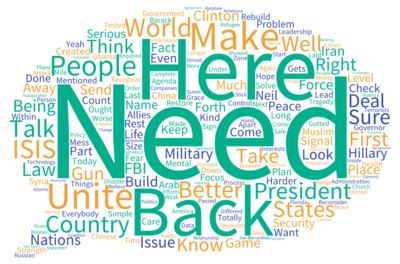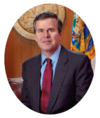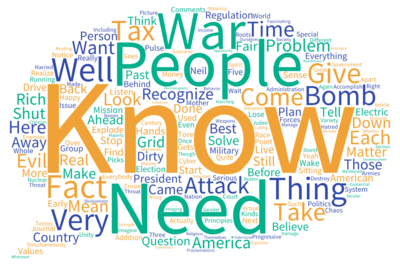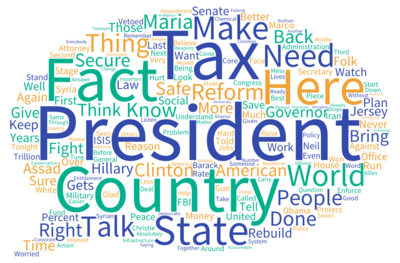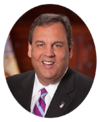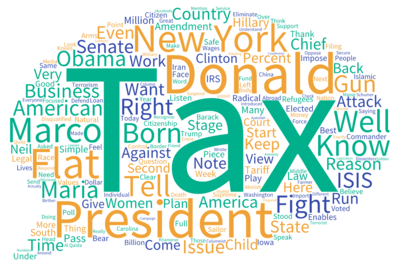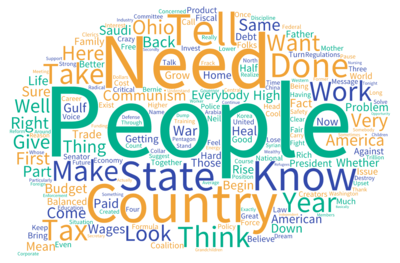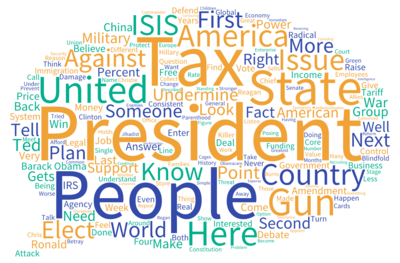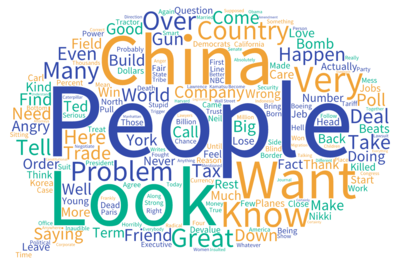North Charleston, South Carolina Fox Business Republican debate (January 14, 2016)
![]() Ballotpedia's scope changes periodically, and this article type is no longer actively created or maintained. If you would like to help our coverage grow, consider donating to Ballotpedia.
Ballotpedia's scope changes periodically, and this article type is no longer actively created or maintained. If you would like to help our coverage grow, consider donating to Ballotpedia.
This article focuses exclusively on the Sixth Republican debate hosted by the Fox Business Network on January 14, 2016. Click here to access Ballotpedia's full 2015-2016 presidential debate coverage. A schedule for Republican primary debates can be found below.
Ballotpedia's coverage of the sixth Republican debate—which took place January 14, 2016—includes an overview of the event's basic information, the results of our Insiders Poll, statistics, and post-debate commentary written by guest writers and members of our senior writing staff. The debate consisted of back-to-back halves. Polling data was used to determine which candidates participated in each segment. More information on participants and rules for inclusion can be found in the "Basic Information" tab below.
Basic Information
Date: January 14, 2016
Time: 6:00 pm and 9:00 pm EDT
Location: North Charleston, South Carolina
Venue: North Charleston Coliseum and Performing Arts Center
Sponsors: Fox Business Network
Moderators:
- Primetime debate: Neil Cavuto and Maria Bartiromo
- Undercard debate: Sandra Smith and Trish Regan
Rules for inclusion: Candidates were required to meet the following criteria in order to participate in the debate:[1]
| “ | In order to qualify for the primetime debate, candidates must either:
OR
OR
In order to qualify for the first debate, candidates must register at least one percent in ONE of the five most recent national polls.[2] |
” |
The debates factored in both national polls, as well as those based in Iowa and New Hampshire conducted and released prior to Monday, January 11, 2016, at 6 p.m. EDT.
Participants
Primetime debate
Early debate
Rand Paul boycotted the debate after he failed to qualify for the primetime event.[3]
Debate Preview
January 13, 2016
By James A. Barnes
James A. Barnes is a senior writer for Ballotpedia. He is the founding editor of the National Journal Political Insiders Poll and is a co-author of the 2016 edition of the Almanac of American Politics.
With the next and perhaps critical round of presidential debates looming what have we learned from the Republican encounters held in 2015 and what might we expect in 2016?
The Republican face-offs are popular with the GOP faithful and perhaps even some independents. The first debate hosted last August by FOX in Columbus, Ohio, scored a Nielsen rating that put the television audience at 24 million, a record for a presidential primary face-off. The next debate on CNN came in a close second in terms of audience size, 23 million. Even the last GOP debate hosted by CNN along with the Salem Radio Network managed a viewership of 18 million, while “up against stiff competition from two of television’s most popular series,” according to Variety.
The GOP debates have consequences. Wisconsin Gov. Scott Walker’s failure to stand out in the first two GOP debates hurt his ability to gain traction in a crowded Republican field. He withdrew from the GOP contest less than a week after a tepid performance at the second GOP confab held at the Ronald Reagan Presidential on September 15. South Carolina Sen. Lindsey Graham, former Louisiana Gov. Bobby Jindal and former Texas Gov. Rick Perry, who were relegated to the undercard debates because of their low poll ratings had to fold their tents as well. Will Kentucky Sen. Rand Paul’s similar demotion to the Jan. 14 undercard debate in North Charleston, S.C., on the Fox Business Network destine him to a similar fate? Fighting the negative connotation of a downgrade that he says is unfair; Paul has decided to boycott the undercard debate.
Former Hewlett-Packard CEO Carly Fiorina, who was also relegated to the undercard in Charleston, plans to participate. Perhaps she’s confident that she can once again elevate her candidacy with an outstanding performance as she did in the first undercard debate on August 6. Her subsequent poll numbers shot up earning her a spot in the main prime-time GOP debates up until now. New Jersey Gov. Chris Christie, who also had to climb up from the undercard ranks, has also shown poise and flashes of spontaneity in the debates that have helped keep him off the GOP casualty list.
In a sense, the debates have become the “winnowing” events of the 2016 presidential campaign. In the past, that role had been played by straw polls where a bad performance could choke off the flow of campaign contributions. But with their relatively large audiences and intense focus by the media—especially by cable television networks hosting a debate—they have drawn a lot of coverage. The presence of Donald Trump, a former reality TV star, at the center of the GOP debate stage has helped to attract interest in these encounters.
Trump has defied the conventions of political debates, insulting rivals and debate moderators alike. Normally, frontrunners like to float above the fray in debates—their main objective to exit an encounter relatively unscathed. But so far Trump’s status as the GOP frontrunner—at least in the polls—remains unshaken. As one Republican Insider put it after the Las Vegas debate, “Trump somehow transcends the debate and all the rules of politics every time.”
Looking ahead to Thursday night, it’s hard to imagine Trump moderating his brash style. And other times when topics that he’s less comfortable with are raised in the debates, like social issues, he tends to recede into the background and let other candidates have more of a say. It’s hard to imagine debate moderators taming his performance.
The Republican White House hopeful who was probably most wounded by Trump’s star turn in the debate was arguably the party’s most conventional candidate, former Florida Gov. Jeb Bush. Bush was a perfect punching bag for Trump: blessed by much of the GOP establishment yet clearly rusty in his first campaign in more than a dozen years, Bush was the perfect target for Trump’s barbed attacks and he hasn’t recovered from his weak showings in the early debates.
Bush desperately needs some commanding debate performances to reverse the slide in his candidacy and get likely GOP primary voters and caucus goers to take him seriously again. On the stump he’s shown a willingness to criticize Trump, but Bush has yet to demonstrate that he can best his celebrity rival in the cut and thrust of a debate. As Ballotpedia debate commentator Karlyn Bowman has noted, this is no easy task for the political scion.
Unlike Bush, those who are well prepared can effectively counterpunch in a debate and score points with political and media elites and the broader audience and Ballotpedia debate commentator David Kusnet has observed, the key is to come across as spontaneous and not scripted. Both Fiorina and Christie have had their moments in that regard.
Texas Sen. Ted Cruz has shown focus and discipline in the debates that have bolstered his candidacy. While not necessarily flashy, Cruz has shown more than once that he knows how to pivot off a question or a statement and drive home his own point. This is a proven debate technique that Cruz honed since his days as a champion collegiate debater.
Candidates can boost their standing with a singular debate performance but the key to making more than an effervescent impression on reporters and viewers alike may be sustained excellence. Florida Sen. Marco Rubio may have gained the most from the first round of Republican debates. He’s demonstrated an ability to weave answers to questions into a broader optimistic vision for the country, often drawing on his parents’ humble origins and background as Cuban immigrants. He also has a good grasp of public policy and many of its details. Quick on his feet, Rubio at times has been eloquent. He established that presence, if you will, in the very first debate and largely maintained it throughout the previous prime-time shows. At the same time, he has climbed up to third place in the polls behind Trump and Cruz in the race for the GOP nomination.
Those debate performances have been a factor in Rubio winning over some important backing from GOP establishment players. Two days after Rubio demonstrated his skills at the third Republican debate at the University of Colorado debate in Boulder, GOP mega-donor Paul Singer endorsed his candidacy. Rubio now faces the challenge sustaining the kind of performances that Republicans have become accustomed to him delivering.
But with the Iowa caucuses less than three weeks away, the North Charleston debate and the January 28 match in Des Moines hosted by Fox News are the last two opportunities before the first ballots are cast in the GOP nominating contest for candidates to seize the moment and build momentum for the final push in Iowa and New Hampshire eight days later. At this juncture in campaign, none of the GOP debaters can afford to sit back and relax. Expect some spirited encounters in the next two weeks.
Statistics
This article analyzes the central themes of the Republican presidential debate held on January 14, 2016, in North Charleston, South Carolina. The transcript prepared by The Washington Post was used to measure candidate participation and audience engagement.[4] Footage from the debate was consulted where there were ambiguities in the text.
To compare the statistics of this debate to the previous Republican debate, see the analysis of the CNN Republican debate in December 2015.
Segments
The sixth Republican presidential debate featured 24 unique discussion segments covering national security, economic policy, and political and character issues. These discussion segments were measured by any shift in the theme of a discussion prompted by one of the moderators: Maria Bartiromo and Neil Cavuto.
- Health of the American economy
- Authorization of military force
- National security and political rhetoric
- Counterterrorism
- Syrian refugees and terrorism
- Ted Cruz's campaign finance disclosures
- Ted Cruz's eligibility for the presidency
- Donald Trump's ability to unify the country
- Chris Christie's record as governor of New Jersey
- Bernie Sanders and socialism
- Bill Clinton's indiscretions
- Gun control and mass shootings
- Donald Trump's "New York" values
- U.S.-Iran relations
- U.S.-Saudi Arabia relations
- Ground strategy in Syria and Iraq
- Banning Muslims and Syrian refugees
- Tariffs on Chinese goods
- Tax reform
- Donald Trump's financial assets
- Police reform
- Immigration reform
- Privacy, technology and national security
- Closing statements
Overall participation
Participation in a discussion segment was defined as a substantive comment related to the discussion segment's topic. Jokes and attempts to gain permission from a moderator to speak were not considered participatory speech acts. In some instances, candidates who participated in a discussion segment diverted from the prompted topic.
The median number of discussion segments per candidate was eight. Donald Trump and Ted Cruz engaged with the most debate topics, participating in 10 discussion segments each. Ben Carson and John Kasich participated in only seven discussion segments.
Aside from the candidates' closing statements, the only discussion segment to include all seven candidates considered whether the U.S. should ban Muslims and Syrian refugees from entering the country. The discussion segments on gun control and tax reform followed for most candidate engagement, with five candidates participating in each. Eleven discussion segments—nearly half of the debate topics—involved only one candidate.
Candidate participation by behavior
Participation in the debate was also measured by the candidate's behavior at the start of each discussion segment. This study considered whether a candidate was initially prompted by a moderator to speak during a discussion segment or whether he or she independently engaged in the discussion segment by interrupting another candidate or calling on the moderator for permission to speak. A candidate's conduct after they joined a discussion segment was not considered.
Jeb Bush was the only candidate who attempted to interject himself into a discussion segment and failed. The topic of that discussion segment was immigration reform.
Candidate participation by speaking time
According to speaking time estimates from NPR, Cruz and Trump spoke the most, registering 17.9 minutes and 17.2 minutes, respectively. Carson spoke the least, registering only 8.4 minutes of speaking time.[5]
To limit the length of a candidate's response, the moderators employed a time bell. Cruz was dinged four times. Kasich, who spoke nearly six minutes less than Cruz, was dinged three times. Christie and Rubio were each dinged once.
Candidate participation by speaking rate
Each candidate's speaking rate was calculated by dividing the total word count of the candidate's speech during the debate with his speaking time as measured by NPR. Although Cruz spoke more than any other candidate, he had the slowest speaking rate at 168 words per minute. Rubio spoke the quickest at 221 words per minute.
Candidate participation by segment vs. speaking time
The amount of time a candidate spoke did not necessarily align with the number of issues he or she covered during the debate. In this debate, the number of discussion segments each candidate participated in was slightly more equally distributed than the amount of speaking time.
Audience engagement
Audience engagement was measured by noting applause, cheering, or laughter in The Washington Post's transcript. Footage from the debate was consulted when the text was ambiguous about to whom the audience was responding.
With 26 separate instances of applause and laughter, Trump received the most vocal response from the crowd. He was also booed three times, however, while making negative statements about Bush and Cruz. It was unclear whether the audience was jeering him or his competitors.[4]
Cruz also received a strong response from the audience as he defended his right to run for president despite his Canadian birth. Nearly one-third of his audience engagement came from this discussion segment.
Candidate speech analysis
|
|
|
|
|
|
|
Ballotpedia's Insiders Poll
GOP Insiders: Rubio wins, Trump gets a nod
January 15, 2016
By James A. Barnes
It’s not unusual for Florida Sen. Marco Rubio to receive positive reviews from Republican political operatives for a debate performance and he got them again last night. What is unusual is for those same GOP elites to give Donald Trump, the brash billionaire who has thrown the Republican establishment into a collective cold sweat with his bid the party’s presidential nomination, a favorable nod.
In a survey of more than 70 Republican political Insiders surveyed by Ballotpedia, 41 percent thought Rubio was the “biggest winner” of the sixth Republican presidential primary debate in North Charleston, S.C., conducted by Fox Business Network. Another 19 percent thought that former Gov. Florida Gov. Jeb Bush earned that distinction. But close behind, 16 percent thought that Trump was the best in show in this first GOP presidential debate of 2016. What’s notable is that in previous GOP face-offs, Trump’s contributions have been barely acknowledged Republican Insiders: in the last GOP debate in Las Vegas only three percent thought he had won that encounter. Texas Sen. Ted Cruz and New Jersey Gov. Chris Christie were each judged to have been the biggest winner by nine percent of the GOP Insiders.
“Trump was strong, plain and simple,” said one GOP Insider. “Cruz showed his glass jaw in his exchange with Trump, where his "New York values" hit on Trump was effectively counterpunched with a tribute to the heroes of 9/11,” said another. Such compliments from Republican Insiders for Trump have been rare.
Still, Rubio maintained his standing and the party’s premier debater. “Rubio was scrappy and looking prepared, hungry for a fight, and rocking a 5 o'clock shadow,” observed one GOP Insider. “Rubio was better than the two people he needed to best—Cruz and Bush, both of whom did well, but not well enough,” said another GOP influential. He “showed steely resolve on every issue,” added a third.
While he was tenacious in the debate, some thought Rubio’s manner was a little excessive. “Marco needs to back off the speed,” one GOP Insider said: “Too much too fast.”
Who had an off night? Retired neurosurgeon Ben Carson: at times he seemed like an asterisk in the debate. Almost half of the GOP Insiders, 45 percent, said he was the “biggest loser” in the debate. “Carson had no business being on that stage,” maintained one GOP Insider. “Carly” Fiorina deserved to be in his place and Rand Paul also deserved a spot in this debate.” Echoed another, “Carly and Rand got cut so Carson could be there? Simply not qualified.” Added a third, “Carson is the incredible shrinking candidate. It is over for him.”
Another indicator of Trump’s solid showing, can be found in responses of 75 Republican Insiders who were asked whether the candidates helped or hurt themselves in the debate.
Not surprisingly, three-out-of-five of the GOP Insiders (61 percent) judged that Rubio had helped himself. Nearly as many, 57 percent, said that the same thing about Christie, as did 44 percent for Bush and 42 percent for Cruz. All of this is consistent with the trend of recent GOP debates: Rubio tends to shine, while Christie, Cruz and Bush have their moments (and the former Florida Governor remains a favorite of many party insiders, even though his popularity among rank-and-file Republican voters has ebbed).
But for Thursday night’s encounter, 39 percent of GOP Insiders said Trumped had helped himself as well, compared to 22 percent who said he’d hurt himself and 39 percent who said the former reality TV star had neither helped nor hurt himself in the debate.
That is a relatively modest showing compared to Rubio or Christie, but remarkably strong compared to the Insiders’ assessment of Trump in previous debates. For instance, in the last GOP debate December 15 Las Vegas debate, only 15 percent of the Republican Insiders surveyed said that Trump had helped himself with his performance, while 51 percent said he had hurt himself. In the November 10 debate in Milwaukee, also hosted by Fox Business, 12 percent said Trump had been helped and 45 percent said he’d been hurt. It’s too soon to tell whether Trump is actually gaining acceptance from the very type of Republican Insiders he delights in confounding and tweaking. But, this may be an indicator that they’re acknowledging his candidacy and treating it seriously.
Democratic Insiders judged Trump to be the clear winner. Only 29 responded, but they overwhelming—66 percent—said Trump was the biggest winner. “I can’t stand Trump,” confessed one Democratic Insider, “but he was surprisingly human in his response about ‘New York values.’ With less than three weeks until the votes start counting, he did well.” Another echoed, “Trump held his ground and his response to ‘New York values’ put that slam to rest.” And a third Democratic Insider maintained, “He isn't going away. He is appealing to the voter that wants to say Merry Christmas, not filter every word and believes this country is too politically correct.”
At the same time, a plurality, 41 percent, still believes that Rubio is the GOP candidate who would their nominee the most trouble. Their runner-up on this question was Trump.
James A. Barnes is a senior writer for Ballotpedia and co-author of the 2016 edition of the Almanac of American Politics. He has conducted elite opinion surveys for National Journal, CNN and the on-line polling firm, YouGov.
Debate Commentary
The columns below were authored by guest columnists and members of Ballotpedia's senior writing staff. The opinions and views belong to the authors.
Trump’s New York Moment
January 15, 2016
By David Kusnet
David Kusnet is a former chief speechwriter for former President Bill Clinton. He is the senior writer and a principal at the Podesta Group, a government relations and public relations firm in Washington, D.C.
Donald Trump won the first nationally televised debate in which he was fully engaged by dominating one exchange with his closest rival, Ted Cruz, and by making a cogent defense of the anger that appeals to much of the electorate and appalls most of the establishment.
While Trump, as always, sounded less scripted than his rivals, he was, in his own way, well-prepared to answer two (contradictory) questions that were sure to be raised: whether he is a pessimistic populist and an Eastern elitist.
In his exchange with Cruz, Trump was better prepared than his usually well-rehearsed rival to address an issue that both had debated at a distance during interviews earlier this week.
Campaigning in Iowa, Cruz had attacked Trump as representing socially liberal “New York values,” while Trump had responded by recalling the suffering and sacrifice of September 11, 2001.
Much like previous debates, where Jeb Bush repeated attacks he’d already made against Marco Rubio, Cruz explained that, “…everyone understands that the values in New York City are socially liberal or pro-abortion or pro- gay-marriage, focused around money and the media. And, and I would note indeed, the reason I said that, is I was asked—my friend Donald has taken to … playing Bruce Springsteen’s ‘Born in the USA’ [at his rallies], and I was asked what I thought of that. And I said, ‘Well, if he wanted to play a song, maybe he could play, “New York, New York”?’ And, and you know, the concept of New York values is not that complicated to figure out.”
In a response that he must have mulled over, if not memorized: Trump counterpunched: “New York is a great place. It’s got great people; it’s got loving people, wonderful people. When the World Trade Center came down, I saw something that no place on Earth could have handled more beautifully, more humanely than New York. You had two one hundred, ... you had two 110-story buildings come crashing down. I saw them come down. Thousands of people killed, and the cleanup started the next day, and it was the most horrific cleanup, probably in the history of doing this, and in construction.”
“I was down there,” Trump continued, “and I’ve never seen anything like it. And the people in New York fought and fought and fought, and we saw more death, and even the smell of death -- nobody understood it. And it was with us for months, the smell, the air. And we rebuilt downtown Manhattan, and everybody in the world watched and everybody in the world loved New York and loved New Yorkers. And I have to tell you, that was a very insulting statement that Ted made.”
Not only Trump’s message but also his manner were pitch-perfect. He spoke slowly and sadly, a New Yorker recalling a tragedy and defending his hometown. Implicitly, he connected his own successes as a builder with the self-sacrificing construction workers who cleared the site of the 9/11 attacks.
While Trump’s tribute to his fellow New Yorkers was more in sorrow than in anger, his defense of his anger was also resonant: “I’m very angry because our country is being run horribly and I will gladly accept the mantle of anger. Our military is a disaster. Our healthcare is a horror show. Obamacare, we’re going to repeal it and replace it. We have no borders. Our vets are being treated horribly. Illegal immigration is beyond belief. Our country is being run by incompetent people. And yes, I am angry. And I won’t be angry when we fix it, but until we fix it, I’m very, very angry.”
To be sure, these two remarks were Trump’s high-points last night, and Cruz, Rubio, Chris Christie and even Bush also had their moments.
Reflecting his usual painstaking preparation, Cruz dominated his exchange with Trump about his eligibility for the presidency. Rubio added a dash of anger to his articulate answers. And Christie, who doesn’t have to feign anger, spoke well throughout the evening.
A few points other pundits haven’t stressed:
- Even though he defended Manhattan, Trump’s great strength is that he’s from what used to be called “the outer boroughs,” having been raised in Queens and worked with his father in Brooklyn. He still has a non-Manhattanite’s mix of awe and resentment for what people in Brooklyn and Queens used to call “the city.”
- Trump isn’t a conventional conservative and rarely, if ever, attacks his Republican rivals, or even President Obama, Hillary Clinton or Bernie Sanders, in ideological terms. This is part of his appeal to disaffected Democrats.
- Trump fills the space that Rudy Giuliani was expected to occupy in 2008 and Christie in this cycle: the tough, brash, pragmatic Northeasterner, scarred and steeled by 9/11.
Before you think Trump can’t travel, remember how many non-New Yorkers wear NYPD or NYFD caps. He can connect with the heartland, in a New York minute.
GOP’s Top Three All Score Points In Charleston
January 15, 2016
By Karlyn Bowman
Karlyn Bowman, a widely respected analyst of public opinion, is a senior fellow and research coordinator at the American Enterprise Institute, a conservative think tank in Washington, D.C.
A new national poll sponsored by NBC News and The Wall Street Journal came out a few hours before last night's debate. Donald Trump led the field with 33 percent, followed by Texas Sen. Ted Cruz at 20 percent, and Florida Sen. Marco Rubio in third place with 13 percent. Of course, we don’t have a national primary and the contests to come in Iowa and New Hampshire and beyond could upset those rankings.
It wasn’t obvious to me that there was a clear winner last night, but the debate in North Charleston, S.C., clearly showed why these three are the top contenders.
Donald Trump, like the others, is a formidable counterpuncher. His response to Cruz’s charge that he embodies “New York values” was sincere and his reference to New Yorkers contributions in the wake of 9/11 should resonate broadly. His defense about being “angry” at so many things in America today, in response to South Carolina Republican Gov. Nikki Haley’s warning in her State of the Union rebuttal about “the siren call of the angriest voices," no doubt struck a chord with many, and especially Republican primary voters.
Cruz was effective on the issue of whether his birth in Canada disqualifies him for the highest office was effective. He hasn’t put the issue to rest, but he won that exchange with Trump. And Rubio, always articulate, scored many points, particularly when he followed up on former Florida Gov. Jeb Bush’s criticism Hillary Clinton at the opening of the debate. Rubio was stronger than Bush, something we have seen before in these debates. I don’t think Bush did much to erase perceptions that he is not top tier in 2016. His knowledgeable and reasoned views about policy on Muslim immigration don’t match the GOP audience’s mood today. Rubio was also effective in raising questions about Cruz’s flat tax proposal. He is a talented debater, but his sharp attacks last night made him seem less likable and more rash than in past debates.
Ohio Gov. John Kasich was less frenetic than in past debate performances, and he and New Jersey Gov. Chris Christie made solid points. But this is a race among the top three, and it is unclear to me how or where Kasich or Bush can really break out. It is possible Christie could do so in New Hampshire, but I don’t see his strength in subsequent primaries and caucuses.
I thought one loser last night was Fox Business Network. The network clearly was interested in stirring it up in the way they did not in their first debate. Maybe that’s inevitable as we get closer to Iowa and New Hampshire, but for this viewer, it was less compelling.
It’s crunch time. What these debates can’t tell us is who has the best organization on the ground in Iowa and New Hampshire, and that is critically important. But what we heard last night, especially from the top three, will energize their supporters.
Republican Debate Schedule
Click the schedule to return back to the top of the page.
See also
- Presidential debates (2015-2016)
- Presidential candidates, 2016
- Presidential election, 2016/Polls
- 2016 presidential candidate ratings and scorecards
- Presidential election, 2016/Straw polls
Footnotes
- ↑ Fox Business, "FOX Business Network Announces Entry Criteria for GOP Primary Debates on Jan. 14," December 23, 2015
- ↑ Note: This text is quoted verbatim from the original source. Any inconsistencies are attributable to the original source.
- ↑ CNN Politics, "First on CNN: Rand Paul to Fox Business: I'm skipping your debate," January 11, 2016
- ↑ 4.0 4.1 The Washington Post, "6th Republican debate transcript, annotated: Who said what and what it meant," January 14, 2016
- ↑ NPR, "On The Clock: Trump And Cruz Dominate Airtime, Carson Lags," January 15, 2016



